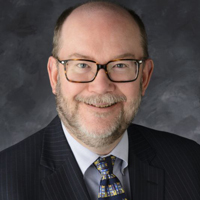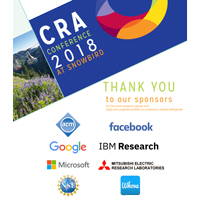Updates on NSF CISE Leadership
We are delighted to provide an update on recent leadership changes within the National Science Foundation’s (NSF) Directorate for Computer & Information Science & Engineering (CISE) over the last several months:
- In the Office of Advanced Cyberinfrastructure (OAC), Manish Parashar joined CISE in February 2018 as the Office Director. Manish joined NSF from Rutgers, the State University of New Jersey, where he is a Distinguished Professor and was the founding Director of the Rutgers Discovery Informatics Institute and the Applied Software Systems Laboratory. Manish served as Program Director in the then-Office of Cyberinfrastructure from 2009 to 2011.
- Balasubramanian “Bala” Kalyanasundaram, Professor and recent Chair of Computer Science at Georgetown University, rejoined CISE as the Acting Division Director for Computing and Communication Foundations (CCF) in March 2018. Bala previously served as program director in CCF and led the CISE-wide Exploiting Parallelism and Scalability program. Bala is providing the scientific expertise essential to the continued success of the CCF division and will ensure a smooth transition in leadership as the search for the next CCF DD continues and concludes.
- Thyagarajan “Thyaga” Nandagopal has been appointed as the Deputy Division Director in CCF. Thyaga has been with NSF/CISE since February 2012, and until his transition to CCF, he managed the wireless research portfolio, including the Platforms for Advanced Wireless Research (PAWR) program, within the CISE Division of Computer and Network Systems.
- We recently announced that Dr. Henry Kautz will join as the Division Director for Information and Intelligent Systems (IIS) on June 11, 2018. Henry is joining from the University of Rochester, where he is Professor and Founding Director of the Georgen Institute for Data Science.
- We are delighted Irene Qualters, who previously served as OAC Office Director (and ACI Division Director) since April 2014, will continue as a Senior Science Advisor in CISE. Irene will continue to contribute to strategic leadership and stewardship of new directions for CISE activities, particularly for the “Big Ideas for Future NSF Investment” in Major Research Equipment and Facilities Construction and Midscale Infrastructure; and will help sustain the Nation’s leadership in advanced computing through interagency and public-private partnerships, as articulated in the National Strategic Computing Initiative (NSCI).
- In addition, Howard Wactlar, from Carnegie Mellon University, who has served as the Acting Division Director for IIS since February 2017, will continue in CISE as a Senior Advisor upon Henry’s arrival. Howard previously led IIS from 2010 to 2014. During his recent time at NSF, he has provided leadership for the Big Idea, Future of Work at the Human-Technology Frontier and has also led a major revision of the NSF-wide Cyberlearning for Work at the Human-Technology Frontier program, transitioning its focus toward continuous education and adult retraining in the face of emerging technologies, such as artificial intelligence.
We also want to acknowledge Dr. S. Rao Kosaraju, who returned to Johns Hopkins University earlier this year after serving as the Division Director for CCF since January 2014. Rao demonstrated tremendously thoughtful and effective leadership for CCF, CISE, and the broader computing research community.
While we highlight changes to our leadership team here, we want to also express that we are incredibly appreciative of all those who serve in CISE more generally! Indeed, many of our scientific staff come from the community and are on temporary leave from their home institutions, serving through Intergovernmental Personnel Act (IPA) assignments. These rotators help ensure important connections to the broader research community.
We invite you to get involved as well! You can serve on panels, participate in workshops, and serve on advisory committees. Even more, consider an IPA assignment at NSF or at another federal agency. To learn more about the life of computing researchers in policy roles in DC, see the CRN column CS in DC.
By serving at NSF, you can help to continue NSF’s stellar track record for advancing transformative research through our investments in people, ideas, and infrastructure. We promise it’ll be an interesting and rewarding experience!









